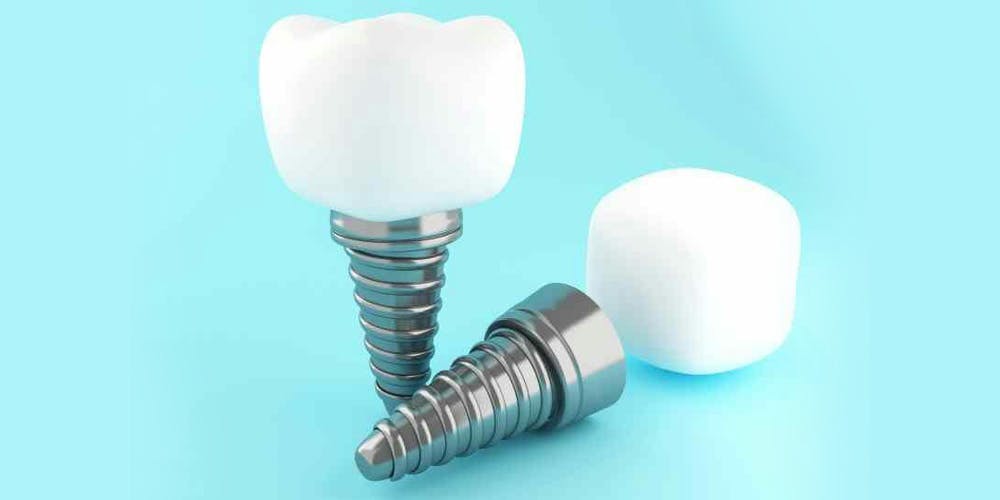Posted by Dr. Taner Cakmak on Mon, 22 Jan 2024
Kanata South Dental - Dentist Kanata

While dental implants are generally successful and have a high rate of osseointegration (fusion with the jawbone), there are situations where integration may not occur as expected. Here are some reasons why dental implants may fail to integrate:
- Insufficient Bone Quantity or Quality:
- Successful osseointegration depends on having an adequate volume and quality of bone at the implant site. If there is not enough bone to support the implant, or if the bone is of poor quality, the implant may not integrate properly.
- Infection:
- Infections in the surgical site can impede the healing process and lead to implant failure. Maintaining good oral hygiene before and after the surgery is essential to prevent infections.
- Poor Blood Supply:
- A healthy blood supply is crucial for proper healing. Conditions that affect blood circulation, such as diabetes or vascular diseases, may compromise the blood flow to the implant site and hinder osseointegration.
- Smoking:
- Smoking is a significant risk factor for implant failure. Nicotine restricts blood flow and can interfere with the healing process, reducing the chances of successful osseointegration.
- Medical Conditions:
- Certain systemic conditions, such as autoimmune disorders or uncontrolled diabetes, can affect the body's ability to heal and integrate the implant properly.
- Uncontrolled Teeth Grinding (Bruxism):
- Habitual teeth grinding or clenching can exert excessive forces on the implants, leading to failure. In some cases, a night guard or other protective measures may be recommended.
- Poor Surgical Technique:
- Implant surgery requires precision and skill. If the surgery is not performed correctly, it may result in implant instability or compromise the surrounding tissues.
- Immediate Loading:
- While immediate loading (attaching a crown or prosthesis immediately after implant placement) is possible in some cases, it may increase the risk of implant failure. In certain situations, it's recommended to allow a healing period before loading the implant.
- Poor Implant Quality:
- The quality of the implant itself can influence osseointegration. High-quality, biocompatible materials are essential for successful integration.
- Foreign Body Reaction:
- In rare cases, the body may react negatively to the implant as a foreign body, leading to rejection or inadequate integration.
It's important to note that most dental implant failures are preventable with proper patient selection, treatment planning, and adherence to postoperative care instructions. Regular follow-up appointments with the dentist, good oral hygiene practices, and addressing any risk factors can significantly improve the likelihood of successful osseointegration and long-term implant success.
If dental implants are not a suitable option for you or if you prefer alternatives there are several alternatives to consider, depending on your specific situation and oral health needs. Here are some common alternatives to dental implants:
If dental implants are not a suitable option for you or if you prefer alternatives, there are several alternatives to consider, depending on your specific situation and oral health needs. Here are some common alternatives to dental implants:
- Dentures:
- Removable dentures are a traditional option for replacing missing teeth. They can be partial (replacing some missing teeth) or complete (replacing all teeth in an arch). Dentures are removable and can be taken out for cleaning.
- Dental Bridges:
- Dental bridges consist of one or more artificial teeth (pontics) supported by adjacent natural teeth or dental crowns. The adjacent teeth are prepared to serve as abutments for the bridge. Unlike dentures, bridges are fixed and not removable.
- Removable Partial Dentures:
- Removable partial dentures are similar to complete dentures but are designed to replace a few missing teeth rather than an entire arch. They are often secured with clasps or other connectors to neighboring natural teeth.
- Resin-Bonded Bridges (Maryland Bridges):
- This type of bridge involves attaching artificial teeth to adjacent natural teeth using metal or porcelain wings. It is a conservative option that does not require significant alteration of adjacent teeth.
- Flipper:
- A flipper is a removable partial denture with a lightweight acrylic base that holds the artificial teeth. It is often used as a temporary solution during the healing period after tooth extraction or before receiving a more permanent restoration.
- Implant-Supported Dentures:
- If you prefer a removable option but want more stability than traditional dentures, implant-supported dentures may be an option. Dental implants are used to anchor the dentures in place, providing better retention and stability.
- Tooth-Supported Overdentures:
- Similar to implant-supported dentures, overdentures are removable and supported by remaining natural teeth. The remaining teeth are typically modified to support the denture.
- Conservative Treatment (Maintaining Existing Teeth):
- In some cases, maintaining and preserving existing teeth through restorative procedures such as fillings, crowns, or root canal treatments may be the best course of action.
Conclusion:
The most suitable alternative depends on factors such as the number of missing teeth, the condition of remaining teeth, budget considerations, and personal preferences. It's essential to discuss your options with your dentist, who can evaluate your oral health and help you choose the most appropriate solution based on your needs and goals. Regular dental check-ups and consultations will also allow your dentist to monitor your oral health and provide timely recommendations.
Dentist Kanata
We will gladly answer any questions you may have.
Ask QuestionsKanata South Dental offers the ability to request your dentist appointments online. Schedule an appointment now!
Book OnlineBy filling out the New Patient Forms ahead of time you will save significant time on your visit.
New Patient FormsLatest News
Key Benefits of Dental Cleaning
Fri, 9 Jan 2026Key Benefits of Dental Cleaning (And What Happens If You Skip Them) Regular dental cleanings play an important role in keeping yo...
Continue Reading